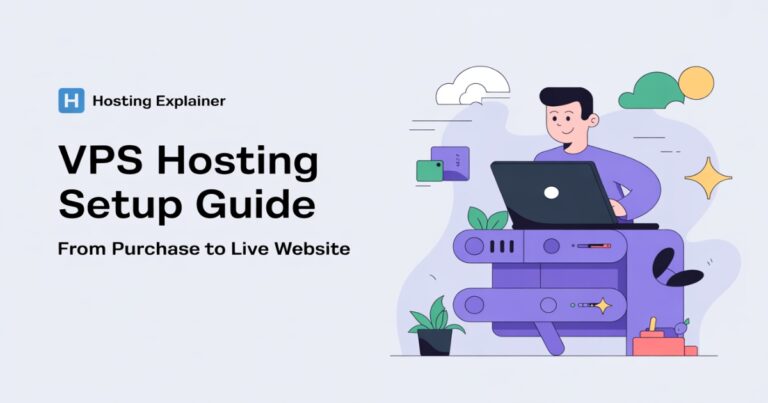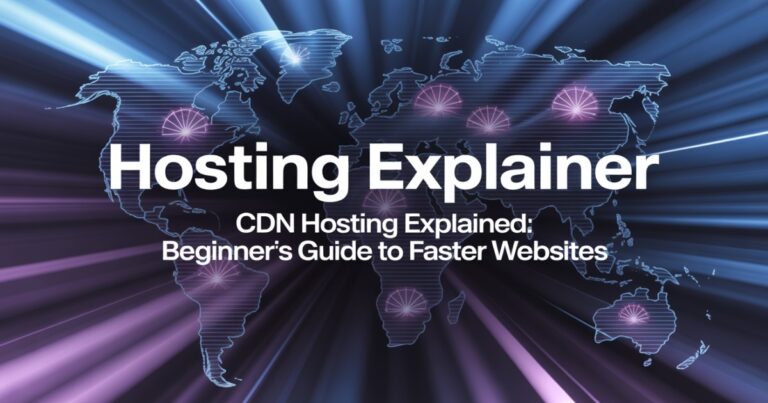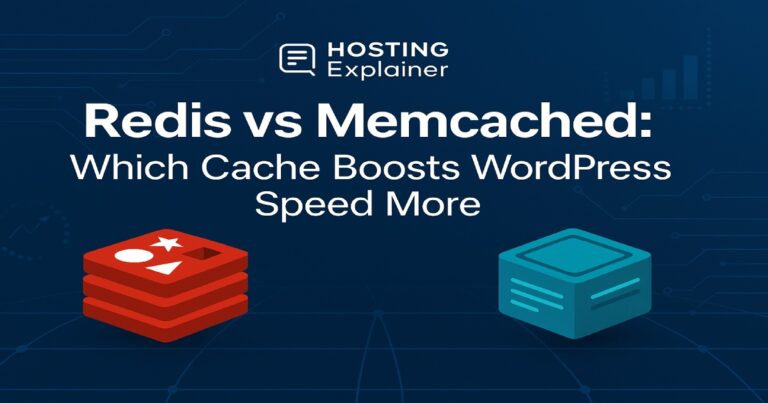Shared vs VPS vs Dedicated Hosting: Which One Should You Choose?
When I launched my first website, I went with the cheapest option: shared hosting. It felt easy and affordable, but as my traffic grew, the site slowed down and even crashed during peak hours.
That’s when I realized hosting isn’t just about price; it’s about matching the right plan to your website’s needs. Choosing between shared hosting, VPS hosting, and dedicated hosting can feel confusing at first.
Each option has its own pros, cons, and best use cases. In this guide, I’ll break down how they differ, when to choose each one, and share insights to help you make the right decision for your site’s future.
What Are the Main Types of Web Hosting?
At a high level, web hosting is the service that stores your website files and makes them available online. The three most common options are
- Shared Hosting: multiple sites share the same server resources.
- VPS Hosting: a server is split into virtual sections, giving you more control and resources.
- Dedicated Hosting: You rent the entire server for your website alone.
Here’s a quick comparison:
| Hosting Type | Cost (Monthly) | Best For | Performance | Scalability |
| Shared | $3–$10 | Beginners, small sites | Low–Medium | Limited |
| VPS | $20–$80 | Growing sites, SMBs | Medium–High | Moderate |
| Dedicated | $100+ | Enterprises, eCommerce | Very High | Excellent |
This table gives you the basics, but let’s dig deeper into what makes each type unique.

Shared Hosting: The Beginner-Friendly Option
Shared hosting is like living in an apartment with roommates. Everyone shares the same kitchen, bathroom, and living space; in hosting terms, that means CPU, RAM, and bandwidth.
Pros and Cons of Shared Hosting
- Pros: Affordable, easy to set up, and beginner-friendly. You don’t need technical skills.
- Cons: Limited resources, slower performance, and less security since other sites affect you.
This makes it a good choice for small websites, personal blogs, or early-stage projects.
Shared hosting is best if you’re starting out and don’t expect heavy traffic. For example, when I built my first WordPress blog, shared hosting worked fine for the first year.
But once my monthly visitors crossed 10,000, performance started dropping. If your site is small and your budget is tight, shared hosting is enough. But for long-term growth, you’ll likely need an upgrade later.
VPS Hosting: The Balanced Middle Ground
VPS stands for Virtual Private Server. Imagine living in a condominium; you still share the building, but your unit is private.
VPS hosting works the same way: you get dedicated resources within a shared server; in hosting terms, that means CPU, RAM, and bandwidth.
Benefits and Limitations of VPS Hosting
- Pros: Better speed, more stability, and the ability to scale. You also get more control over server settings.
- Cons: Higher cost than shared hosting and may require some technical knowledge.
This balance makes VPS hosting a strong choice for businesses that need reliability without paying for a full server.
You should consider upgrading when:
- Your site is loading slowly even after optimization.
- You see frequent downtime during traffic spikes.
- Your project needs custom configurations or extra security.
When my blog traffic grew beyond 20,000 monthly visitors, I switched to VPS hosting. The difference was clear: faster load times, fewer crashes, and better SEO performance.
Dedicated Hosting: Maximum Power and Control
Dedicated hosting means the server belongs only to you. It’s like owning a private villa; you control every detail and don’t share resources with anyone else.
In hosting terms, that means CPU, RAM, and bandwidth are under your full control.
Advantages and Drawbacks of Dedicated Hosting
- Pros: Maximum performance, best security, and complete control.
- Cons: Very expensive and requires advanced technical management.
Dedicated hosting is ideal for:
- Large eCommerce stores handling thousands of daily visitors.
- Enterprises with sensitive data requiring strict security.
- Websites running complex applications or databases.
For example, a fashion brand running flash sales would benefit from dedicated hosting. It ensures stability and speed even under heavy traffic.
Shared vs. VPS vs. Dedicated Hosting: Key Differences
Performance & Speed
Shared hosting is the slowest since resources are divided among many users. VPS offers faster speeds because resources are isolated.
Dedicated hosting delivers the highest performance since you get the whole server.
Security & Reliability
Security is weakest in shared hosting since one compromised site can affect others. VPS is safer, but dedicated hosting offers the strongest protection with custom firewalls and monitoring.
Scalability & Growth
Shared hosting has very limited scalability. VPS gives you moderate flexibility. You can upgrade RAM or storage as needed. Dedicated hosting scales best but comes with higher costs.
Cost Comparison
- Shared Hosting: $3–$10/month
- VPS Hosting: $20–$80/month
- Dedicated Hosting: $100–$500/month
Here’s a quick takeaway: start small, scale with VPS, and go dedicated when your business depends on maximum uptime and performance.
How to Choose the Right Hosting for Your Website
Choosing the right hosting comes down to four factors:
- Budget: Shared hosting works if money is tight. VPS or dedicated is better when you can invest more.
- Traffic: Low traffic can survive on shared hosting. Medium to high traffic needs VPS or dedicated.
- Technical Skills: Shared hosting is easy. VPS and dedicated servers need some management skills.
- Business Goals: If your website is a hobby, shared is fine. If it’s a core business asset, VPS or dedicated is smarter.
When I moved from shared to VPS hosting, I noticed my Google rankings improved because faster load times improve user experience. Sometimes, hosting isn’t just a technical choice; it can directly affect SEO and sales.
FAQs About Shared vs VPS vs Dedicated Hosting
- What is the difference between shared, VPS, and dedicated hosting?
Shared hosting shares resources, VPS gives you private resources within a shared server, and dedicated hosting gives you a full server to yourself.
2. Is VPS hosting worth it for small websites?
For small sites, shared hosting is usually enough. VPS makes sense if you expect growth or need better performance.
3. Which type of hosting is fastest?
Dedicated hosting is the fastest, followed by VPS. Shared hosting is the slowest.
4. When should I choose dedicated hosting?
Go dedicated if you run an enterprise-level site, eCommerce store, or app that demands top performance and security.
5. Which hosting is best for WordPress?
Small WordPress sites run fine on shared hosting, but VPS or dedicated hosting is better for high-traffic blogs or online stores.
Which Hosting Should You Choose?
The choice between shared, VPS, and dedicated hosting depends on your website’s stage and goals. Shared hosting is affordable and beginner-friendly, VPS hosting balances power and price, and dedicated hosting offers unmatched control for demanding projects.
Choose hosting not just for where you are today, but where you want your website to be tomorrow. If you’re starting out, shared hosting works. As you grow, VPS gives you stability, and when your site becomes mission-critical, dedicated hosting ensures maximum performance.






